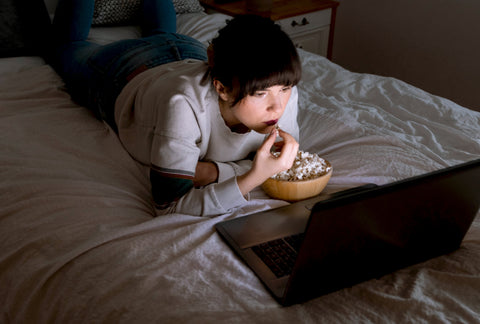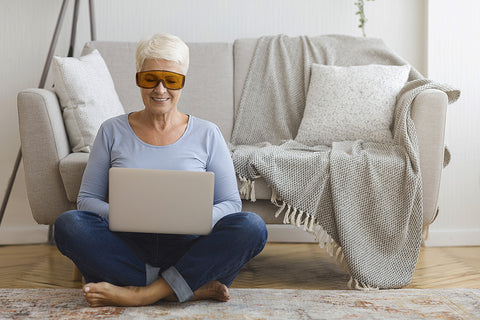There is a revolution taking place that recognizes the importance of restful, healing sleep.
It begins the moment you draw your first breath. Your anxious parent or caretaker begins to monitor how long you slept and how often you woke up. Friends and colleagues eagerly ask parents, “Is the baby sleeping?” and health professionals use sleep as an indicator of a child’s general health.
Each of us has a primal understanding of the importance of sleep even if we’re not exactly sure what it’s value truly is. Today more than ever, as our lives become increasingly stressful, getting enough sleep has become a marker of success and a signal to other people that your life is under control.
Society’s Changing Views
We no longer celebrate stories of pulling all-nighters to work around the clock. It used to be a sign of ambition and status to be able to function on very little sleep, burning the candles at both ends so to speak. But times change, and society increasingly recognizes the multiple benefits that quality sleep has for both the individual and society as a whole. In today’s data-driven world where everything is measured, the business of health and by extension sleep has become a multi-million dollar industry. The ability to deliver drug-free, healthy solutions that ensure a good night’s sleep is the holy grail of the industry.
The New York Times reported in 2017 that “bad sleep weakens the immune system, impairs learning and memory, contributes to depression and other mood and mental disorders, as well as obesity, diabetes, cancer and an early death”, while renowned medical research centre The Mayo Clinic explains that ‘your body needs sleep to fight infectious diseases. Long-term lack of sleep also increases your risk of obesity, diabetes, and heart and blood vessel (cardiovascular) disease’.
“Sleep is the single most effective thing you can do to reset your brain and body,” explains Dr. Matthew Walker, a neuroscientist at the University of California, Berkeley. He is witnessing first-hand the many ways that companies and organizations are trying to improve the quality of our sleep through both awareness campaigns and company run wellness programs.
The Business of Sleep
Technology also has a big part to play in sleep innovation. From podcasts like Sleep With Me designed to help you relax to Sleep Cocoon beds that lull you to sleep, there is no shortage of new products and services designed to improve the quality and length of our sleep cycles. Dreem is a new headband that uses sound waves to induce sleep, while Thim is a gadget you wear on your finger that uses sound to counter-intuitively cure sleep disruption.
It’s no surprise that large companies are jumping on the sleep bandwagon. The Rand Corporation released a study in 2017 that estimated countries lose up to 3% of GDP every year due to a lack of sleep. That translates into billions of dollars of productivity lost. This is a huge incentive for companies to find solutions.
Naturally, there is no one-size-fits-all solution. Our needs vary widely. Marian Salzman is a trend spotter and chief executive of Havas PR North America. “Sleep is personal,” she explains, “It’s class, not mass, and now the sleep industry is based on technical services, customized for me. It’s a bizarre marriage of high tech and low tech. Chamomile tea is going to have a resurgence, as the antithesis to the whole pharma thing.”
It’s not just in business where the effects are being felt. The military is another sector where vast investments are being made in better sleep as a way of improving the well-being and readiness of soldiers to respond to stressful situations.
The Real Benefits of Sleeping Well
We all know that a good night’s sleep can have a transformative effect on mood and overall health, but here are some other benefits of a good night’s sleep:
- Healthy weight maintenance
- Improved ability to fight infections
- Increase in peak performance
- Superior muscle repair and growth
- Increased mental acuity
- Promoting a sense of well-being
- Lowered risk of PTSD, depression, and anxiety
The Harmful Effects of Blue and Green Light
With the advent of illumination on demand, we disrupted our natural light dark dictated sleep cycle. According to the weekly Harvard Health Newsletter published by Harvard Medical School, “At night, light throws the body's biological clock—the circadian rhythm—out of whack. Sleep suffers. Worse, research shows that it may contribute to the causation of cancer, diabetes, heart disease, and obesity.”
More and more research is being done that uncovers the links between the color of light and its effect on sleep and wakefulness. A team at the University of Oxford has concluded that ‘green light may be expected to increase wakefulness in humans’, which ‘points to a need to understand the effects of artificial lighting and it’s different color balances.’
We now know, for example, that blue and green light sources like TV screens, computer monitors, and smartphones trick your brain and body into thinking that it’s daytime. As a result, the brain is overstimulated at bedtime and is unable to relax and unwind in preparation for a good night’s sleep.
Read about the Link Between Poor Sleep, Blue Light & Depression.
With all the work being done to decode sleep, there is no shortage of solutions to improve your sleep. No matter the size of your budget, you can take proactive steps at work and at home to dramatically improve the quality of your sleep that will give you a far greater ability to deal with the stresses of modern life.
Restore the health of your eyes by blocking damaging blue and green light with protective, stylish blue-blockers from SafetyBlue™. Explore our collection of stylish SafetyBlue™ glasses today. When you subscribe to our newsletter, you’ll get 10% off your first order.
Sources:
https://www.nytimes.com/2017/04/08/fashion/sleep-tips-and-tools.html
https://safetyblueblockers.com/products/sleep-savior-ultra
https://www.rand.org/randeurope/research/projects/the-value-of-the-sleep-economy.html
https://www.health.harvard.edu/staying-healthy/blue-light-has-a-dark-side
https://www.mayoclinic.org/diseases-conditions/insomnia/expert-answers/lack-of-sleep/faq-20057757
https://www.sciencedaily.com/releases/2016/06/160608154233.htm




